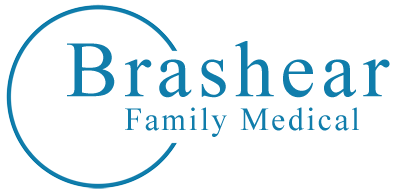Most people with thyroid cancer have no known risk factors, so it is not possible to prevent most cases of the disease.
Radiation exposure, especially in childhood, is a known thyroid cancer risk factor. Because of this, doctors no longer use radiation to treat less serious diseases. Imaging tests such as x-rays and CT scans also expose children to radiation, but at much lower doses, so it’s not clear how much they might raise the risk of thyroid cancer (or other cancers). If there is an increased risk it is likely to be small, but to be safe, children should not have these tests unless they are absolutely needed. When they are needed, they should be done using the lowest dose of radiation that still provides a clear picture.
Blood tests can be done to look for the gene mutations found in familial medullary thyroid cancer (MTC). Because of this, most of the familial cases of MTC can be prevented or treated early by removing the thyroid gland. Once to disease is discovered in a family, the rest of the family members can be tested for the mutated gene.
If you have a family history MTC, it is important that you see a doctor who is familiar with the latest advances in genetic counseling and genetic testing for this disease. Removing the thyroid gland in children who carry the abnormal gene will probably prevent a cancer that might otherwise be fatal.
Thyroid Cancer Risk Factors
A risk factor is anything that affects a person’s chance of getting a disease such as cancer. Different cancers have different risk factors. Some risk factors, like smoking, can be changed. Others, like a person’s age or family history, can’t be changed.
But risk factors don’t tell us everything. Having a risk factor, or even several risk factors, does not mean that you will get the disease. And many people who get the disease may have few or no known risk factors. Even if a person with thyroid cancer has a risk factor, it is very hard to know how much that risk factor may have contributed to the cancer.
Scientists have found a few risk factors that make a person more likely to develop thyroid cancer.
Risk Factors that Can’t Be Changed
Gender and Age
For unclear reasons thyroid cancers (like almost all disease of the thyroid) occur about 3 times more often in women than in men.
Thyroid cancer can occur at any age, but the risk peaks earlier for women (who are most often in their 40s or 50s when diagnosed) than for men (who are usually in their 60s or 70s).
Hereditary Conditions
Several inherited conditions have been linked to different types of thyroid cancer, as has family history. Still, most people who develop thyroid cancer do not have an inherited condition or a family history of the disease.
Medullary Thyroid Cancer
About 8 out of 10 medullary thyroid carcinomas (MTCs) result from inheriting an abnormal gene. These cases are known as familial medullary thyroid carcinoma (FMTC). FMTC can occur alone, or it can be seen along with other tumors.
The combination of FMTC and tumors of other endocrine glands is called multiple endocrine neoplasia type 2 (MEN 2). There are 2 subtypes, MEN 2a and MEN 2b, both of which are caused by mutations (defects) in a gene called RET.
- In MEN 2a, MTC occurs along with pheochromocytomas (tumors that make adrenaline) and with parathyroid gland tumors.
- In MEN 2b, MTC is associated with pheochromocytomas and with benign growths of nerve tissue on the tongue and elsewhere called neuromas. This subtype is much less common than MEN 2a.
In these inherited forms of MTC, the cancers often develop during childhood or early adulthood and can spread early. MTC is most aggressive in the MEN 2b syndrome. If MEN 2a, MEN 2b or isolated FMTC runs in your family, you may be at very high risk of developing MTC. Ask your doctor about having regular blood tests or ultrasound exams to look for problems and the possibility of genetic testing
Other Thyroid Cancers
People with certain inherited medical conditions have a higher risk of more common forms of thyroid cancer. Higher rates thyroid cancer occur among people with uncommon genetic conditions such as:
Familial Adenomatous Polyposis (FAP)
People with this syndrome develop many polyps and have a very high risk of colon cancer. They also have an increased risk of some other cancers, including papillary thyroid cancer. Gardner syndrome is a subtype of FAP in which patients also get certain benign tumors. Both Gardner syndrome and FAP are caused by defects in the gene APC.
Cowden Disease
People with this syndrome have an increased risk of thyroid problems and certain benign growths (including some called hamartomas). They also have an increase risk of cancers of the thyroid, uterus, breast, as well as some others. The thyroid cancers tend to be either the papillary or follicular type. This syndrome is most often caused by defects in the gene PTEN. It is also known as Multiple Harmartoma Syndrome and PTEN Harmartoma Tumor Syndrome.
Carney Complex, Type I
People with this syndrome may develop a number of benign tumors and hormone problems. They also have an increased risk of papillary and follicular thyroid cancers. This syndrome is caused by defects in the gene PRKAR1A.
Familial Nonmedullary Thyroid Carcinoma
Thyroid cancer occurs more often in some families, and is often seen at an earlier age. The papillary type of thyroid cancer most often runs in families. Genes on chromosome 19 and chromosome 1 are suspected of causing these familial cancers.
If you suspect you might have a familial condition, talk with your doctor, who might recommend genetic counseling if your medical history warrants it.
Family History
Having a first-degree relative (parent, brother, sister or child) with thyroid cancer, even without a known inherited syndrome in the family, increases your risk of thyroid cancer. The genetic basis for these cancers is not totally clear.
Risk Factors that Can Be Changed
A Diet Low in Iodine
Follicular thyroid cancers are more common in areas of the world where people’s diets are low in iodine. In the United States, most people get enough iodine in their diet because it is added to table salt and other foods. A diet low in iodine may also increase the risk of papillary cancer if the person also is exposed to radioactivity.
Radiation
Radiation exposure is a proven risk factor for thyroid cancer. Sources of such radiation include certain medical treatments and radiation fallout from power plant accidents or nuclear weapons.
Having had head or neck radiation treatments in childhood is a risk factor of thyroid cancer. Risk depends on how much radiation is given and the age of the child. In general, the risk increases with larger doses and with younger age at treatment.
Before the 1960s, children were sometimes treated with low doses of radiation for things we wouldn’t use radiation for now, like acne, fungus infections of the scalp (ringworm), or enlarged tonsils or adenoids. Years later, the people who had these treatments were found to have a higher risk of thyroid cancer. Radiation therapy in childhood for some cancers such as lymphoma, Wilms tumor and neuroblastoma also increases risk. Thyroid cancers that develop after radiation therapy are not more serious than other thyroid cancers.
Imaging tests such as x-rays and CT scans also expose children to radiation, but at much lower doses, so it’s not clear how much they might raise the risk of thyroid cancer (or other cancers). If there is an increased risk it is likely to be small, but to be safe, children should not have these tests unless they are absolutely needed. When they are needed, they should be done using the lowest dose of radiation that still provides a clear picture.
Several studies have pointed to an increased risk of thyroid cancer in children because of radioactive fallout from nuclear weapons or power plant accidents. For instance, thyroid cancer was many times more common than normal in children who lived near Cernobyl, the site of a 1986 nuclear plant accident that exposed millions of people to radioactivity. Adults involved with the cleanup after the accident and those who lived near the plant have also had higher rates of thyroid cancer. Children who had more iodine in their diet appeared to have a lower risk.
Some radioactive fallout occurred over certain regions of the United States after nuclear weapons were tested in western states during the 1950s. This exposure was much, much lower than that around Chernobyl. A higher risk of thyroid cancer has not been proven at these lower exposure levels. If you are concerned about possible exposure to radioactive fallout, discuss this with your doctor.
Being exposed to radiation when you are an adult carries much less risk of thyroid cancer.

